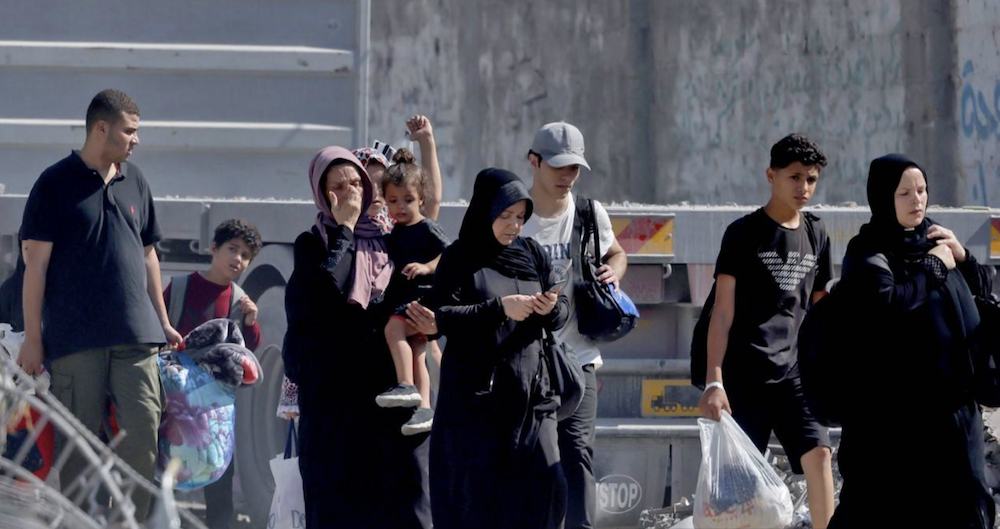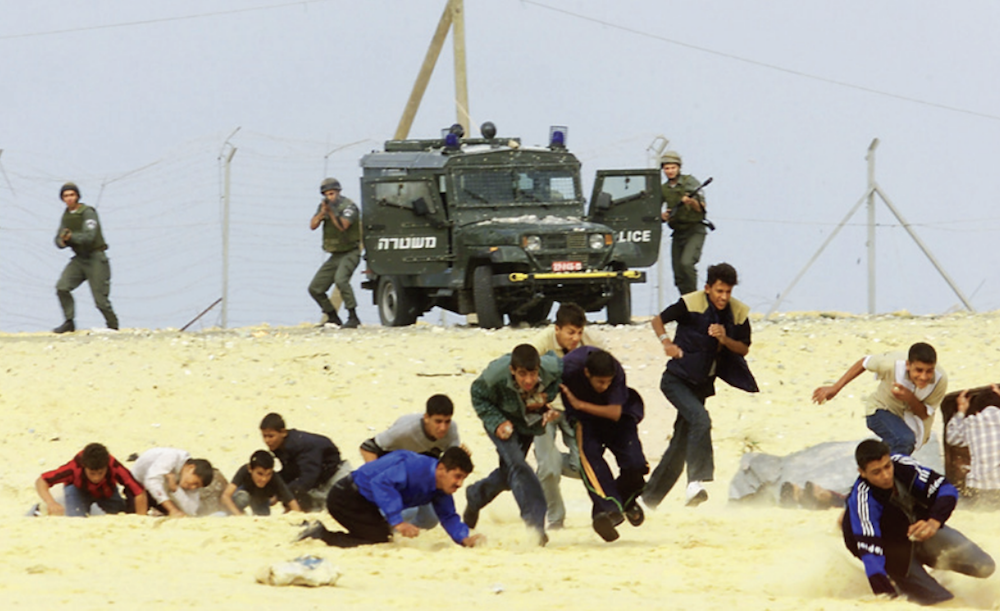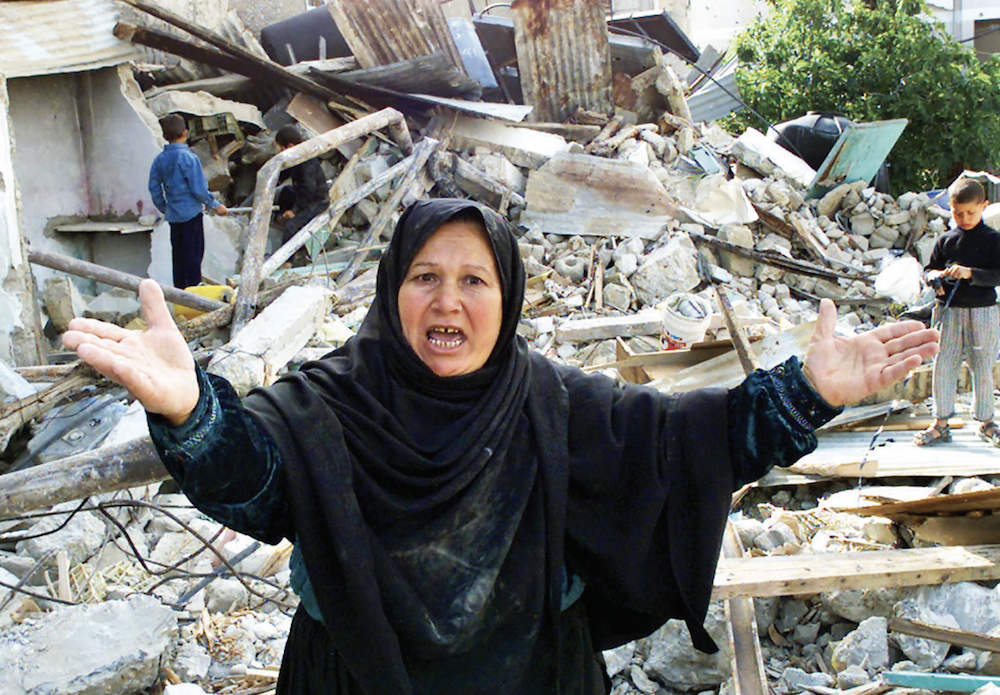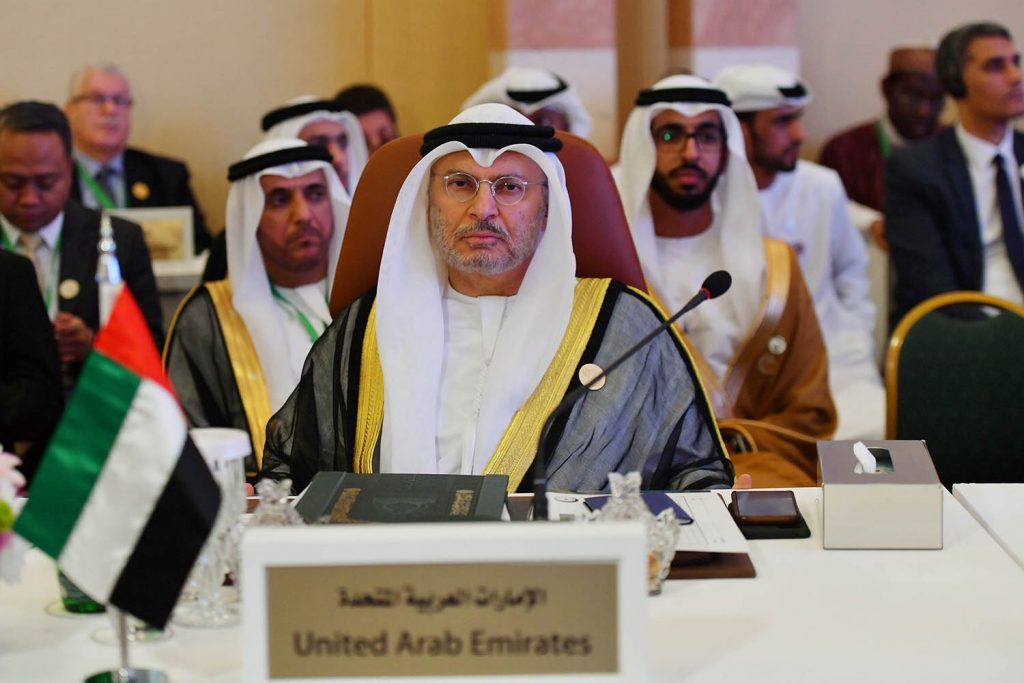LONDON: Israel has left open the prospect of its reoccupation of the Gaza Strip after the anticipated defeat of the Palestinian militant group Hamas, claiming it will be responsible for finding a civilian administration to take over the Palestinian territory.
The prospect of a return to direct Israeli administration, however, raises a host of questions about what obligations and responsibilities it would have as an occupying power, given Gaza’s unique characteristics in relation to international law.
More than a month since the fighting began, Israel still lacks a coherent post-conflict policy for Gaza, with the government facing down far-right politicians’ provocations for Palestinian expulsion while flip-flopping on its own intentions.
Having early in the conflict told ABC News that Israel would have “overall security responsibility … for an indefinite period” over the Palestinian enclave, a strong reproach from the US caused Prime Minister Benjamin Netanyahu to flip, telling Fox News just days later that occupation was, in fact, not the intention.
Rather, he said the plan was to “demilitarize, deradicalize, and rebuild” the Gaza Strip while holding responsibility for finding a “civilian government” to manage the territory, leaving the door ajar for an interim occupation.
Certainly, this is where experts see the situation heading.

Palestinians with their belongings flee to safer areas in Gaza City after Israeli air strikes, on October 13, 2023. (AFP)
Writing in The Conversation earlier this month, Durham University peace and security studies lecturer Rob Geist Pinfold said he expects a replay of Israel’s previous “diverse occupations to date.”
In practice, he said, Israel would likely move to “indefinitely” occupy parts of Gaza and seek “to eschew responsibility for civilian governance elsewhere in the territory.”
While it may seek to avoid responsibility, under international humanitarian law, Israel could nonetheless find itself obligated to intervene in civilian governance.
Eugenie Duss, a research fellow at the Geneva Academy of International Humanitarian Law and Human Rights, told Arab News the law of belligerent occupation is designed to allow civilians to continue their lives “as normally as possible.”
As such, she said, the existing local system must ensure provision of food, health services, hygiene, spiritual assistance and education.
“However, if the needs of the local population cannot be thus satisfied, the occupying power must itself provide goods and services while respecting local traditions and sensitivities,” she said.
“If it still cannot satisfy the needs of the local population, the occupying power must agree to and facilitate external humanitarian assistance.”
Occupation, though, is nothing new for Gaza.

sraeli soldiers shoot at stone-throwing Palestinian teenagers in Khan Younes in the Gaza Strip during clashes in October 2000. (File Photo/AFP)
Israel may have dismantled and removed its 21 settlements from the Strip in 2005 as part of former Prime Minister Ariel Sharon’s policy of disengagement, but there is something approaching consensus within the international legal community that the government retained effective control over the territory as an occupying force.
Duss said this “majority view” stems largely from Israel having retained control over Gaza’s airspace, territorial waters, land border crossings, supply of civilian infrastructure, and key governmental functions such as management of the Palestinian population registry.
When pushed on this, Israel has long maintained that Gaza was not, and is not, occupied. As justification, it says the territory had not been recognized as a “high contracting party” vested with rights and obligations under international law at the time of its initial occupation in 1967.
“The International Court of Justice rejected Israel’s argument, stating that it was sufficient that Jordan and Israel (the ICJ only had to address the West Bank’s status) were, at the relevant time, parties to the conventions and engaged in an armed conflict that led to the West Bank’s occupation,” said Duss.
“It is therefore irrelevant whether occupied territory belongs to another state.”
Concurring, Emily Crawford, professor of international law at the University of Sydney, told Arab News that recognition of Palestinian statehood was immaterial. Indeed, of the 193 UN states, 138 have acknowledged Palestine as a sovereign state.
For Crawford, Palestinian accession to the Geneva and Hague conventions between 2014 and 2018 provided it with protections under international humanitarian law and rendered Israel obligated to occupy Palestinian territory per the conventions’ edicts.
Those rules are “pretty expansive and cover some fundamental principles,” said Duss.
INNUMBERS
* 12,000+ Palestinians killed in Gaza in Israeli military offensive, according to Palestinian health authorities.
* 1,200 Israelis and foreigners killed in Hamas attack on Oct. 7, according to Israeli authorities.
* 230+ People held hostage by Hamas and allied groups, according to Israeli authorities.
“Protected persons may neither be forcibly transferred or otherwise deported out of the occupied territory nor forcibly transferred within the occupied territory.
“Also, the occupying power may not transfer parts of its own population, even if they consent, into the occupied territory.”
Furthermore, protected persons in an occupied territory may only be deprived of their liberty as civilian internees for imperative security reasons, in view of a criminal trial or to serve a criminal sentence.
And for those who are detained, the law provides guarantees that they are to be treated humanely and within their own territory.
Local legislation remains applicable and local institutions must be allowed to continue to function, said Duss, with the occupying power only allowed to amend local laws in four scenarios: to protect the security of its forces; to comply with international humanitarian law; to respect its obligations under international human rights law; and where explicitly authorized by the UN Security Council.
Even private property has protections under the law. This includes property dedicated to religion, charity, education, the arts, and sciences, none of which may be confiscated, although Duss said it may be requisitioned for the needs of the occupying army.

A Palestinian woman shouts as her children search 15 April 2001 through the remains of their home destroyed by the Israeli army in Rafah in the southern Gaza Strip. (AFP/File Photo)
“It may be argued that the concept of property also covers both tangible and intangible interests,” said Duss.
“The destruction of private property is only permitted when rendered absolutely necessary by military operations. Movable enemy public property, including cash, that can be used for military operations may be seized as war booty.”
One question left lingering, though, concerns whether an occupation is in itself legal.
Both Crawford and Duss note that an occupation’s legality is essentially dependent upon whether it has received authorization from the UN Security Council.
If so, then an occupation can be deemed legal. As an example, Crawford noted the interim occupation of Kosovo that ran from 1999 to its declaration of independence in 2008.
Given there is widespread support for the claim that Israel has in fact occupied Palestine for more than 50 years, one is left questioning the effectiveness of this body of law.
“Is the law fit for purpose? Sort of — but only in situations where it is not a prolonged occupation,” said Crawford.
“The entirety of the law of occupation is geared toward occupation being temporary, so in situations where it is less than temporary … the system starts to strain.”
As with a lot of things in international law, she said, policing behavior is dependent upon how much the state in question plans to follow the rules. Nonetheless, she stressed there are mechanisms that third parties can use to force the occupier’s hand.

“The lesson we are taking away from the Gaza crisis is the need to go back to the two-state solution,” said Anwar Gargash, foreign policy adviser to the UAE president. (AFP)
“There is always the option of non-judicial enforcement mechanisms, like sanctions, embargoes, diplomatic pressure, as well as postbellum criminal trials or taking the question to the International Court of Justice,” said Crawford.
Many non-legal factors also contribute to respect of international humanitarian law, including routine, military interest in discipline and efficiency, public opinion, ethical and religious factors, positive reciprocity, and a desire to re-establish a durable peace, said Duss.
While the media “all too often” spotlights violations, the reality is that international humanitarian law is more often than not “respected rather than violated,” she added.
Some may scoff at the latter suggestion, with the court in the past having proved powerless, particularly if one looks at its 1986 Contras entanglement with the US, which, when ruled against, simply denied the court’s jurisdiction.
But what makes things different in the case of Gaza is the “unprecedented public attention being focused on it,” said Crawford.
“For the first time in my memory, we’re seeing widespread protests not just from Palestinian groups but from concerned Israelis and Jewish groups both in and outside Israel regarding what is taking place,” she said.
“There seems a huge groundswell against Netanyahu and the response by the Israeli government, which has been described as disproportionate, and perhaps driven by other motives than self-defense.
“In time, that may prove to be a powerful force in controlling and even ending what is taking place.”





























